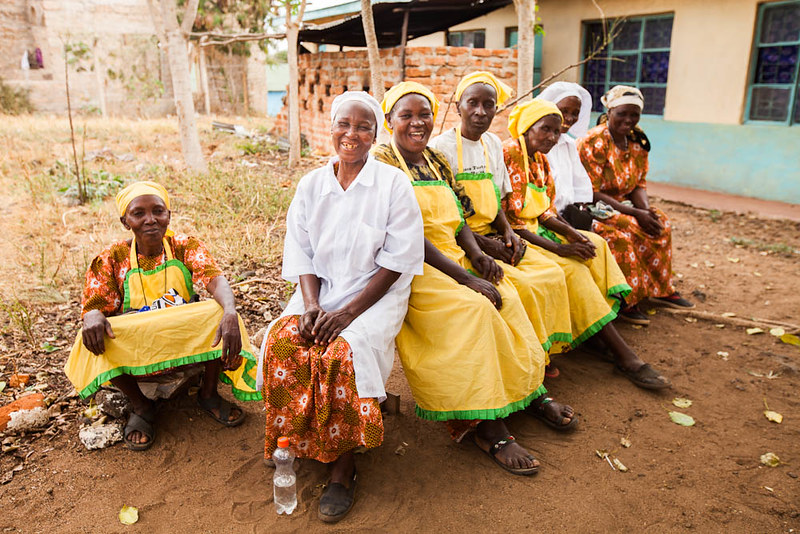Fighting Period Poverty in Kenya with Reusable Sanitary Products
 Every month, around 2 billion people across the planet menstruate. Although periods are a natural and healthy bodily function, they interrupt the lives, freedoms and rights of millions around the world because these individuals cannot afford or access menstrual products or proper sanitation and hygiene facilities and lack education and awareness to manage their menstrual health hygiene a possibility. This is a period poverty.
Every month, around 2 billion people across the planet menstruate. Although periods are a natural and healthy bodily function, they interrupt the lives, freedoms and rights of millions around the world because these individuals cannot afford or access menstrual products or proper sanitation and hygiene facilities and lack education and awareness to manage their menstrual health hygiene a possibility. This is a period poverty.
Period Poverty In Kenya
In Kenya, 65% of women and girls cannot afford the basic sanitary necessities that they need to manage their periods. This means that they regularly have to miss work and school due to period poverty. Missing work can threaten a woman’s career and losing income means that an individual has less money to spend on their period in general. Missed school days can cause young girls to drop out of education earlier, putting their future in jeopardy.
When women and girls lose their access to education, they lose out on both “life-long opportunities for employment” and their chance to “reach their fullest potential,” according to the U.N. Women. For many young girls, this also means being forced into child marriages, sexual abuse and even mutilation as their period is seen as a “coming of age.”
According to Amref Health Africa, two-thirds of sanitary pad users in Rural Kenya receive them from sexual partners. In addition, a quarter of girls in the country do not associate menstruation with pregnancy, highlighting how a lack of education about menstruation and menstrual hygiene poses fundamental risks to individuals everywhere.
The U.N. Women warns that girls involved in these transactional sex arrangements to pay for their menstrual products have a dramatically increased chance of an HIV infection.
AHADI Reusable Pads
The word AHADI means promise in Kiswahili and this brand promises that “women and girls will fulfill their destiny by maximizing their potential through education.” The organization aims to combat period poverty in Kenya by improving access to affordable sanitation products.
Bethsheba Otuga is the founder of AHADI Reusable Pads. The pads are made of cloth and can be washed up to 24 times. Otuga states that this means the user can be secure in their period for two years. Making the pads reusable means that they are also more affordable – packs of four sell for about $4 – for those living in poverty.
AHADI’s mission statement is to produce cost-effective reusable pads that “will increase women’s and girls’ self-esteem and dignity because of increased comfort and hygiene levels” during their period, according to its website.
Ending the stigma around periods is a huge first step towards ending period poverty in Kenya and around the world. Only 50% of girls in Kenya say that they can openly discuss menstruation at home, and just 12% stated that they would feel comfortable receiving information about their period from their mother, according to Amref Health Africa.
The reusable pads that AHADI produces aim to increase women’s dignity by increasing hygiene levels and allowing them to continue their normal daily activities without worrying about leaking through their clothes. The organization aims to give women and girls the assurance that they will not be embarrassed because they cannot afford production during their period.
Looking Forward
AHADI has produced more than 1,000 packs of pads (each containing four pads) within the last year, all of which the organization has sold and distributed across Nairobi, Kenya. Each of these 1000 packs has impacted a girl’s life across several schools, the most recent of which is the distribution of 120 packs of reusable pads to Seeds of Hope Educational Centre in Kibera, according to AHADI’s website.
Bethsheba Otuga and AHADI are working to end the stigma and period poverty in Kenya. Ending stigma is the first step to making real changes that could drastically change the lives of women and girls living all across the country.
Ensuring easy and affordable access to sanitary products for anyone who may need them at any time means supporting all to reach their fullest potential at all points during the month and throughout their lives.
– Kristina Grant
Kristina is based in Scotland and focuses on Good News and Technology for The Borgen Project.
Photo: Flickr
